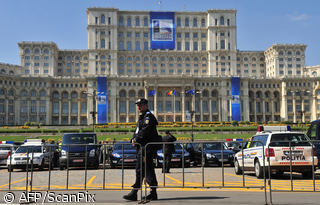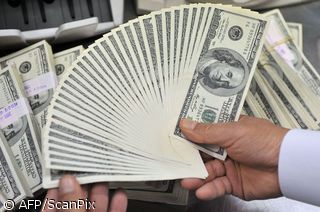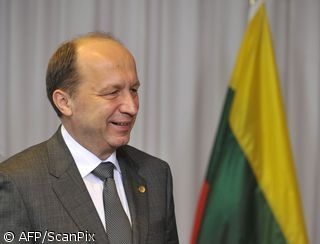Middle Eastern states took measures this week to weather the impact of a looming US-led war on Iraq on their economies
Published:
15 March 2003 y., Saturday
In Amman, Minister of Commerce and Industry Salah Bashir said Thursday Jordan was counting on increasing its exports to the United States to make up for lost revenue from a halt in sales to Iraq in the event of war.
Jordan is expected to suffer the most in the region for the duration of a war, as Iraq is its biggest export market, and Baghdad has been supplying it with crude oil at a highly preferential rates for Jordanian industry. Bashir also said Jordan was planning to continue using Israel’s port of Haifa to ship its exports to the United States, mostly goods produced in duty free zones that are exempted from US duties in line with a 1996 agreement.
In Egypt, interest rates on treasury bonds were hiked for the second week in a row, reaching more than 10 percent, and state imports were frozen for three months, in order to relieve pressure exerted on the local pound by the looming war. The Egyptian pound has lost more than 20 percent to the dollar since it was free-floated on Jan. 29. Analysts said dollar-holders are generally unwilling to sell over concern that a war on Iraq might tighten hard currency supply further by causing a slump in tourism and exports.
Egypt’s flag carrier EgyptAir said Sunday flights to some destinations will be re-routed to avoid dangerous skies, and some flights will be regrouped in order to cut costs, should a war break out. The company expects serious hardship due to its dependency on tourist traffic.
In Lebanon, the central bank’s foreign currency reserves have been boosted to about $10 billion following the disbursement of funds promised last November by international donors, its governor Riad Salameh said. Lebanon has already received $2.2 billion of the $4.4 billion in loans promised by the donors’ conference held in Paris.
Šaltinis:
arabnews.com
Copying, publishing, announcing any information from the News.lt portal without written permission of News.lt editorial office is prohibited.
The most popular articles
 The EBRD is supporting the modernisation of transport infrastructure in Serbia with a €150 million sovereign loan to finalise the construction of a new motorway section along the strategic Corridor X.
more »
The EBRD is supporting the modernisation of transport infrastructure in Serbia with a €150 million sovereign loan to finalise the construction of a new motorway section along the strategic Corridor X.
more »
 The Executive Board of the International Monetary Fund (IMF) today completed the first review of Romania’s economic performance under a program supported by a 24-month Stand-By Arrangement (SBA).
more »
The Executive Board of the International Monetary Fund (IMF) today completed the first review of Romania’s economic performance under a program supported by a 24-month Stand-By Arrangement (SBA).
more »
 The Executive Board of the International Monetary Fund (IMF) today approved a three-year, SDR 13.57 million (about US$21.5 million) arrangement under the Poverty Reduction and Growth Facility (PRGF) for the Union of the Comoros.
more »
The Executive Board of the International Monetary Fund (IMF) today approved a three-year, SDR 13.57 million (about US$21.5 million) arrangement under the Poverty Reduction and Growth Facility (PRGF) for the Union of the Comoros.
more »
 The Executive Board of the International Monetary Fund (IMF) today completed the second review of Mongolia's economic performance under a program supported by an 18-month Stand-By Arrangement (SBA).
more »
The Executive Board of the International Monetary Fund (IMF) today completed the second review of Mongolia's economic performance under a program supported by an 18-month Stand-By Arrangement (SBA).
more »
 Parex banka has established a subsidiary, SIA NIF (“Nekustamo īpašumu fonds”, or “Real Estate Fund”), which will professionally manage assets that are not related to the Bank’s core business.
more »
Parex banka has established a subsidiary, SIA NIF (“Nekustamo īpašumu fonds”, or “Real Estate Fund”), which will professionally manage assets that are not related to the Bank’s core business.
more »
 In his address at the Lithuanian-Belarusian Business Forum “Belarus and Baltic States: new prospects for cooperation”, Prime Minister Andrius Kubilius has pointed out that Lithuania sees Belarus as creating its future in Europe...
more »
In his address at the Lithuanian-Belarusian Business Forum “Belarus and Baltic States: new prospects for cooperation”, Prime Minister Andrius Kubilius has pointed out that Lithuania sees Belarus as creating its future in Europe...
more »
 JDRF Employs VoIP and Web-Based Video Collaboration Enabled by Cisco for More Effective Teamwork Among Employees and Constituents.
more »
JDRF Employs VoIP and Web-Based Video Collaboration Enabled by Cisco for More Effective Teamwork Among Employees and Constituents.
more »
 On 16 September 2009, AB Bank SNORAS group finished the transaction during which it purchased from AB “Invalda” with its own funds 100 per cent of the shares of AB “Finasta įmonių finansai”, managing AB Bank “Finasta”.
more »
On 16 September 2009, AB Bank SNORAS group finished the transaction during which it purchased from AB “Invalda” with its own funds 100 per cent of the shares of AB “Finasta įmonių finansai”, managing AB Bank “Finasta”.
more »
 Federal Reserve Chairman Ben Bernanke that the worst U.S. recession since the Great Depression was probably over, but the recovery will take time.
more »
Federal Reserve Chairman Ben Bernanke that the worst U.S. recession since the Great Depression was probably over, but the recovery will take time.
more »
 Growth expected to return in the second half of 2009. Forecasts are still uncertain but fears of a severe, prolonged recession are fading.
more »
Growth expected to return in the second half of 2009. Forecasts are still uncertain but fears of a severe, prolonged recession are fading.
more »